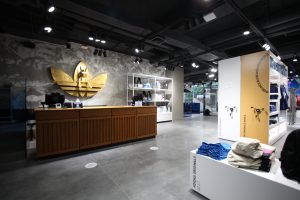MOST German businesses in the Philippines expressed optimism about business conditions in the next 12 months as the economy, investment, and employment improve.
In the German-Philippine Chamber Commerce and Industry (GPCCI) Spring 2024 survey, 61% of the 70 participants said that they are confident in business developments for the next 12 months, while 35 participants said they remain confident about current business conditions.
“It’s encouraging to see such confidence from businesses involved in German-Philippine relations, forecasting a bullish local economy,” GPCCI President Marie Antoniette Mariano said in a statement on Monday.
“This optimism surely points to a thriving environment in the Philippines for both investment and job creation over the next 12 months,” Ms. Mariano added.
In the survey, 55% of the companies said that they expect the economy to improve over the next 12 months, while 61% and 44% said that they expect employment and investment, respectively, to improve.
However, the results of the Spring 2024 survey showed a decline in business sentiment, as the Fall 2023 survey had returned a 68% rate of optimism for business conditions in the next 12 months.
Meanwhile, German businesses in the Philippines have identified the country’s economic policy conditions as the primary challenge in doing business in the Philippines.
“(This is) due to complex regulations, frequent policy changes, and extensive bureaucracy creating an unpredictable environment,” the GPCCI said.
Rounding up the top three risks identified by the participants are high energy prices and supply chain disruptions and inadequate infrastructure, as these impact profit margins, operating costs, and operational efficiency.
“To capitalize on the current economic optimism, it’s imperative that the Philippine government work closely with businesses to resolve these identified challenges,” says GPCCI Board Director and Policy and Advocacy Chairperson Marian Norbert Majer.
“Addressing these issues can help create a more predictable and favorable business environment and ensure that this bullish momentum translates into substantial outcomes that will help the Philippines attain sustained economic growth,” Mr. Majer added.
Asked what makes it hard for companies to diversify, the German businesses cited increased legal and regulatory issues, difficulties in finding suppliers and business partners, and high costs.
Despite this, more than half, or 55%, of the companies said that they are prepared to handle international crises and geopolitical risks.
“Our network continuously assesses the resilience of German companies’ supply chains at their international locations, aiming to significantly mitigate the risk of future disruptions, such as transport interruptions or the sudden loss of production facilities,” said GPCCI Executive Director Christopher Zimmer.
“We see that our respondents in the Philippines are actively enhancing the resilience of their operations by expanding supplier networks and venturing into new markets,” he added. — Justine Irish D. Tabile
